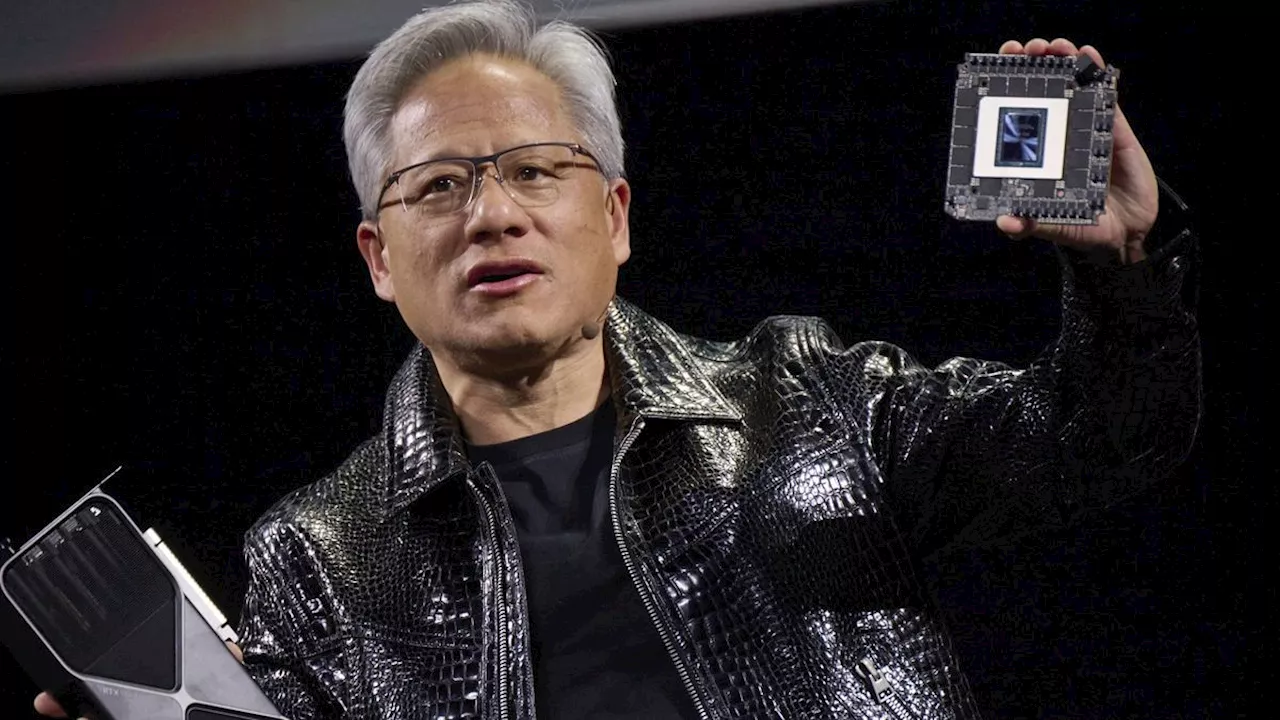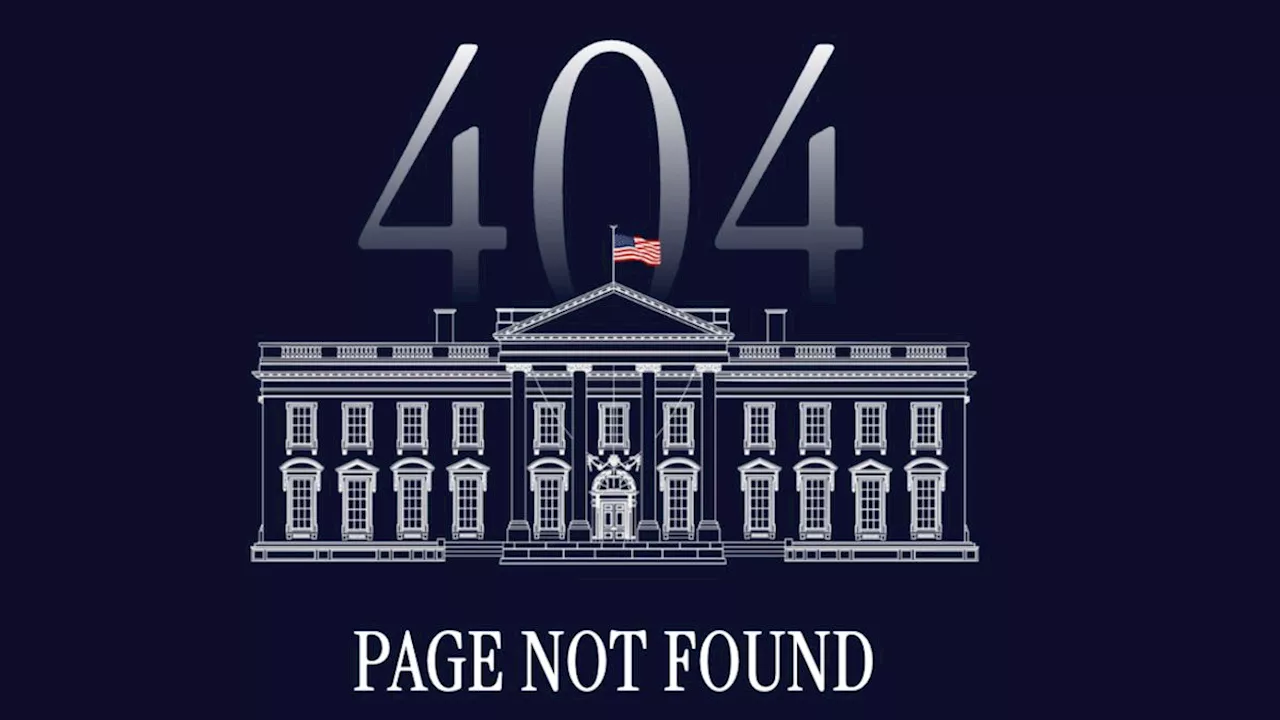The Trump administration has revoked a significant Biden-era executive order aimed at regulating the development and use of artificial intelligence (AI). Order 14110, issued in 2023, sought to mitigate the risks associated with AI by requiring safety testing, protecting copyrighted material, and addressing bias concerns. The revocation raises questions about the future of AI regulation in the US and the potential for an unregulated AI boom.
A sweeping list of Biden administration executive order s was revoked on the first day of Trump's second term, one particularly notable for its impact on technology stands out. Order 14110, issued in October 2023, aimed to mitigate the risks associated with developing artificial intelligence (AI) technologies. This order mandated that AI system developers share the results of safety tests with the US government and directed relevant federal agencies to establish standards for these tests.
The order, originally titled 'Safe, Secure and Trustworthy Development and Use of Artificial Intelligence,' also included provisions for protecting copyrighted material used in training AI models, such as ChatGPT. It sought to minimize 'unlawful discrimination' stemming from AI model bias and aimed to prevent US jobs from being negatively impacted by AI.When the order was initially issued, it garnered support from certain segments within the AI industry. Microsoft President Brad Smith hailed it as a 'critical step forward in the governance of AI technology.' However, regardless of its perceived advantages or disadvantages, one thing is certain: Order 14110 is officially defunct. Among a myriad of executive orders revoked, this one seemingly signifies a shift towards less stringent regulation in the AI sector.The implications of this revocation remain somewhat unclear. On one hand, it could potentially lead to an unregulated AI development free-for-all. On the other hand, it's uncertain how much practical impact the now-canceled order had. In reality, its repeal might have minimal discernible effects. Parallelly, other legislative measures, like a March 2024 law banning biometric data use, requiring safety testing for high-risk systems before release, and mandating disclosure of copyrighted data used in training, are in place. Despite this, calls for increased AI regulation and the establishment of a federal agency responsible for licensing operators exceeding a certain threshold of AI capability continue to be made.Simultaneously, it's evident that even the most advanced and well-resourced tech companies can release AI tools that are either ineffective or raise safety concerns. This reality is highlighted by past incidents, like the on-again, off-again controversies surrounding AI systems with inadequate guardrails. Therefore, the trade-off lies in balancing the economic and strategic benefits of freeing the US AI industry from any perceived constraints versus the potential damage that might arise from unleashing unregulated AI technology. With the Trump administration effectively purging Order 14110, all that remains is to brace for the future and observe how the next four years unfold in the AI landscape
AI Regulation Executive Order Trump Administration Artificial Intelligence Biden Administration Technology Policy
United Kingdom Latest News, United Kingdom Headlines
Similar News:You can also read news stories similar to this one that we have collected from other news sources.
 Permian Basin Methane Emissions Reduced, Trump Administration Could Undo ProgressA recent study shows that methane emissions in the Permian basin have significantly decreased, but the incoming Trump administration's policies could reverse these gains.
Permian Basin Methane Emissions Reduced, Trump Administration Could Undo ProgressA recent study shows that methane emissions in the Permian basin have significantly decreased, but the incoming Trump administration's policies could reverse these gains.
Read more »
 The Ukraine Dilemma: A Balancing Act for the Incoming Trump AdministrationThe future of Ukraine poses a significant geopolitical challenge in the coming year. Donald Trump's potential approach to the conflict, focusing on a swift resolution through potentially coercive measures, raises concerns about its implications for Ukraine, Europe, and US interests. The article explores both the risks of a negotiated settlement that undermines Ukraine's sovereignty and the challenges of securing a more favorable outcome.
The Ukraine Dilemma: A Balancing Act for the Incoming Trump AdministrationThe future of Ukraine poses a significant geopolitical challenge in the coming year. Donald Trump's potential approach to the conflict, focusing on a swift resolution through potentially coercive measures, raises concerns about its implications for Ukraine, Europe, and US interests. The article explores both the risks of a negotiated settlement that undermines Ukraine's sovereignty and the challenges of securing a more favorable outcome.
Read more »
 Nvidia CEO Eager to Congratulate Trump, Joins Chorus of Tech Leaders Supporting Incoming AdministrationNvidia CEO Jensen Huang expresses his support for Donald Trump and his eagerness to congratulate him on his victory, joining a growing list of tech CEOs aligning with the incoming administration.
Nvidia CEO Eager to Congratulate Trump, Joins Chorus of Tech Leaders Supporting Incoming AdministrationNvidia CEO Jensen Huang expresses his support for Donald Trump and his eagerness to congratulate him on his victory, joining a growing list of tech CEOs aligning with the incoming administration.
Read more »
 UK Delays Chagos Island Transfer Until Trump AdministrationThe UK government is postponing the transfer of sovereignty of the Chagos Islands to Mauritius until after the inauguration of US President-elect Donald Trump. The decision follows concerns raised by Trump allies about the implications for the strategically important Diego Garcia military base.
UK Delays Chagos Island Transfer Until Trump AdministrationThe UK government is postponing the transfer of sovereignty of the Chagos Islands to Mauritius until after the inauguration of US President-elect Donald Trump. The decision follows concerns raised by Trump allies about the implications for the strategically important Diego Garcia military base.
Read more »
 Trump Administration Could Reshape Student Loan LandscapeAs Donald Trump prepares to assume the presidency, millions of Americans who have benefited from President Biden's student loan forgiveness and relief programs face uncertainty. Trump's stance on these initiatives suggests potential changes to repayment options, including the elimination of income-based plans and interest subsidies. Programs like public service loan forgiveness may also be at risk. Experts advise borrowers to review their original loan terms and prepare for possible payment increases.
Trump Administration Could Reshape Student Loan LandscapeAs Donald Trump prepares to assume the presidency, millions of Americans who have benefited from President Biden's student loan forgiveness and relief programs face uncertainty. Trump's stance on these initiatives suggests potential changes to repayment options, including the elimination of income-based plans and interest subsidies. Programs like public service loan forgiveness may also be at risk. Experts advise borrowers to review their original loan terms and prepare for possible payment increases.
Read more »
 TikTok Faces US Ban as Supreme Court Rules in Favor of Trump AdministrationThe Supreme Court has paved the way for a potential TikTok ban in the US, citing national security concerns. President Biden will not enforce the ban, leaving the decision to incoming President Donald Trump. TikTok faces a Sunday deadline to be sold by its Chinese parent company or face a complete shutdown in the US.
TikTok Faces US Ban as Supreme Court Rules in Favor of Trump AdministrationThe Supreme Court has paved the way for a potential TikTok ban in the US, citing national security concerns. President Biden will not enforce the ban, leaving the decision to incoming President Donald Trump. TikTok faces a Sunday deadline to be sold by its Chinese parent company or face a complete shutdown in the US.
Read more »
